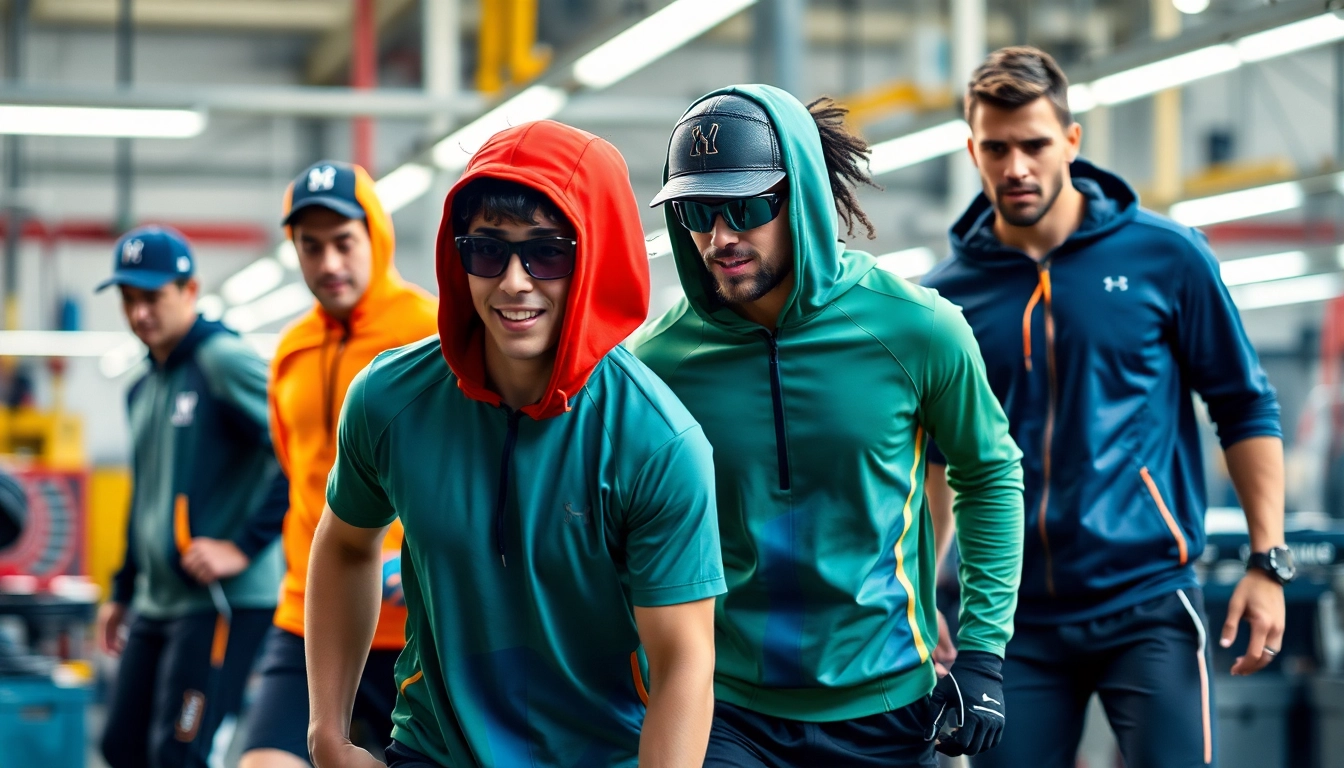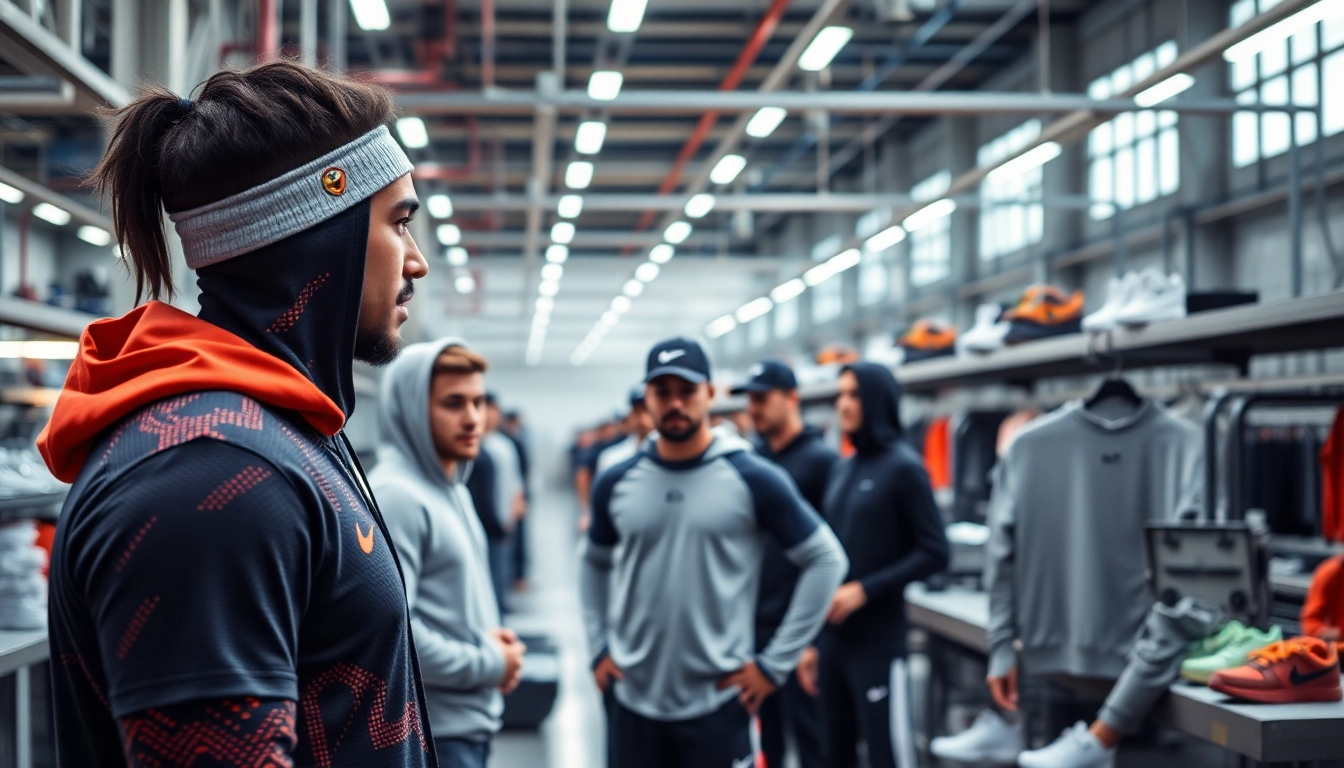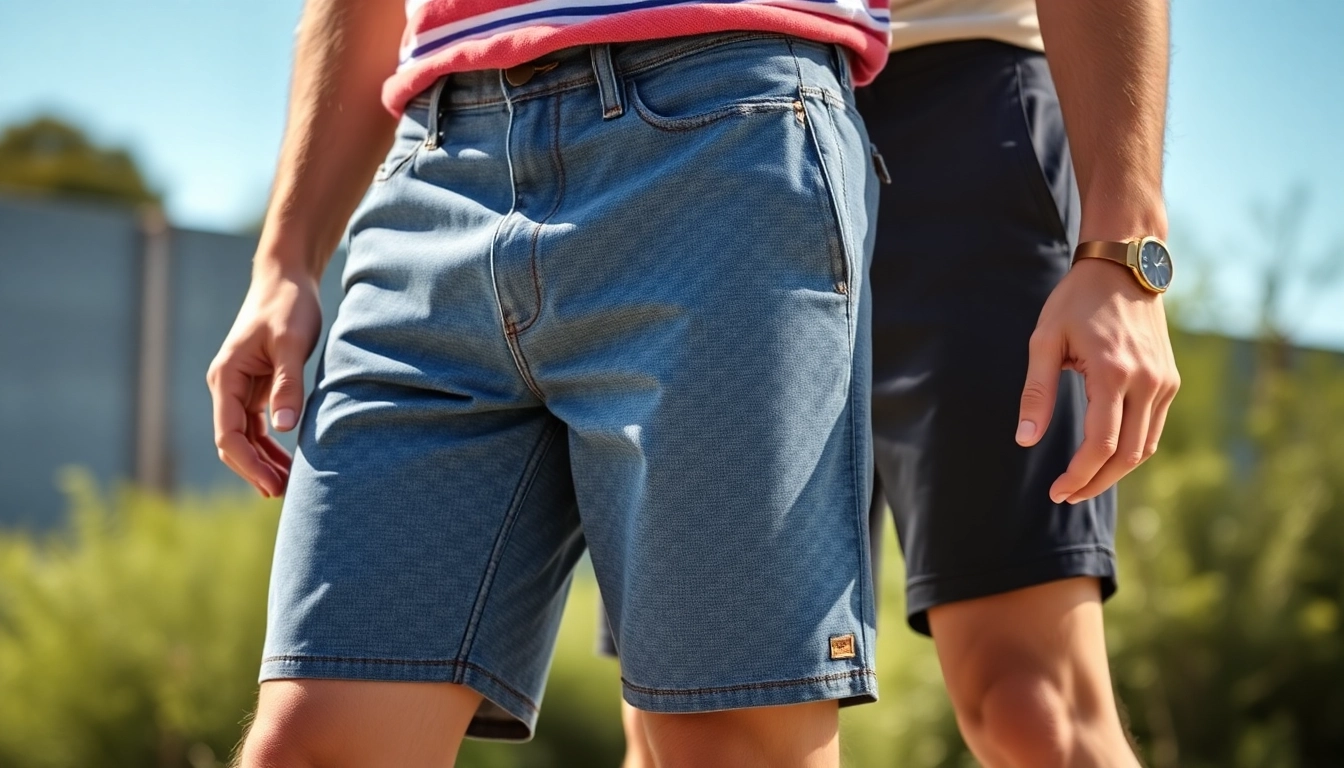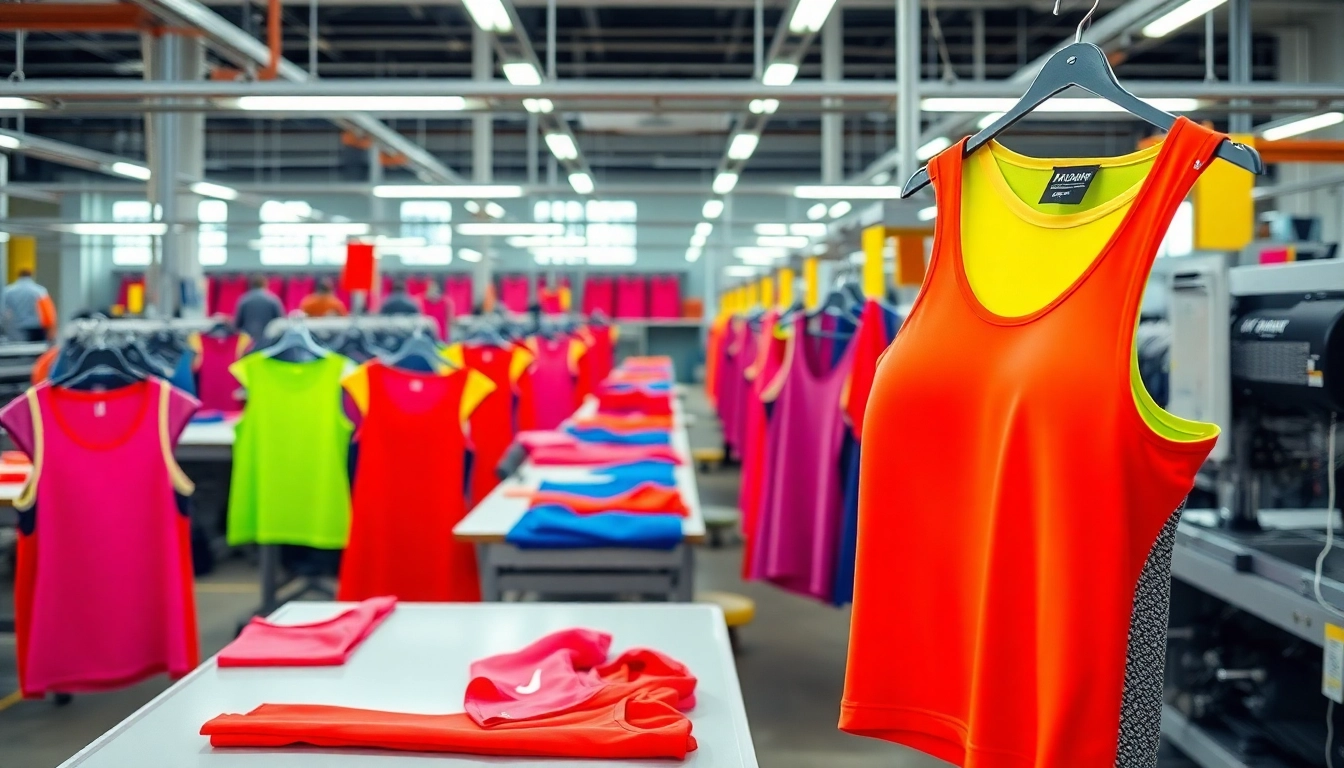Understanding the Role of Sportswear Manufacturers in the Athletic Wear Industry
In the rapidly evolving sports and fitness industry, the backbone of athletic apparel innovation and supply chain efficiency lies with dedicated Sportswear Manufacturers. These entities are instrumental in transforming raw materials into performance-enhancing, stylish, and durable sports apparel used by athletes, fitness enthusiasts, and everyday consumers worldwide. From small bespoke workshops to large-scale producers in countries like Pakistan, sportswear manufacturers play a pivotal role in setting industry standards, pioneering technological advancements, and meeting the dynamic demands of the global market.
Definition and Importance of Sportswear Manufacturers
Sportswear manufacturers are specialized entities engaged in designing, producing, and distributing athletic clothing tailored for various sports, fitness activities, and casual wear. Their importance extends beyond mere production; they are innovators, quality stewards, and strategic partners for brands seeking to deliver high-performance apparel. Manufacturers influence product functionality through fabric choice, construction quality, and technological integration, ensuring athletes receive gear that enhances performance and comfort.
In essence, sportswear manufacturers serve as the critical link between raw textile innovations and the end-user. Their ability to adapt swiftly to market trends, incorporate sustainability practices, and offer customization options significantly impacts a brand’s competitive edge and customer loyalty.
Key Features that Distinguish Top Manufacturers
Leading sportswear manufacturers distinguish themselves through several key features:
- Material Innovation: Incorporating advanced fabrics like moisture-wicking, anti-odor, UV-protective, and compression materials that enhance athletic performance.
- Quality Assurance: Rigorous testing protocols, certification adherence, and consistent quality control processes ensure durability and safety of products.
- Customization Capabilities: Offering bespoke designs, logos, colorways, and technical features tailored to client needs.
- Technological Integration: Utilizing cutting-edge manufacturing technologies like seamless knitting, sublimation printing, and 3D modeling.
- Scalability and Lead Time Efficiency: Capacity to produce large volumes within tight deadlines, crucial for sports teams and event apparel.
- Sustainability Practices: Commitment to eco-friendly materials and ethical manufacturing processes increasingly differentiate top-tier manufacturers.
Global Trends Impacting the Sportswear Manufacturing Sector
The sportswear manufacturing industry is significantly shaped by global trends, including:
- Sustainable and Eco-Friendly Manufacturing: The shift towards biodegradable fabrics, waterless dyeing techniques, and fair labor practices is gaining momentum.
- Technological Advancements: Smart textiles integrated with sensors, AI-driven customization, and digital prototyping are revolutionizing product development.
- Emergence of Niche Markets: Specialized segments such as e-sports apparel, inclusive sizing, and adaptive sportswear are expanding the industry’s reach.
- Supply Chain Localization: Post-pandemic shifts emphasize resilient, localized supply chains, influencing manufacturing hubs like Pakistan.
- Growing Consumer Expectations: Demand for stylish, functional, and ethically produced sportswear compels manufacturers to elevate standards.
Choosing the Right Sportswear Manufacturer: Essential Criteria
Quality Standards and Material Selection
Quality is the cornerstone of successful sportswear partnership. Prospective clients must evaluate a manufacturer’s adherence to international quality standards such as ISO 9001, Oeko-Tex certifications, and industry-specific benchmarks. Material selection should align with the intended application—whether lightweight mesh for running, compression fabrics for muscle support, or durable textiles for team sports. Additionally, the manufacturer’s ability to source innovative, sustainable fabrics can enhance product appeal and marketability.
Customization and Design Capabilities
In a highly competitive market, the ability to deliver personalized products with precise customization options is vital. Leading manufacturers utilize advanced design software, in-house graphic teams, and flexible manufacturing processes to accommodate bespoke branding, technical features, and aesthetic preferences. Clients should assess transparency in sample development, prototyping speed, and the range of customization services offered.
Production Capacity and Lead Times
Depending on your business scale and project deadlines, evaluating a manufacturer’s production capacity is essential. Leading sportswear producers operate state-of-the-art factories capable of handling high-volume orders without sacrificing quality. Clear communication regarding lead times, order flexibility, and contingency plans often determine the success of a partnership, particularly in the realms of sponsorship, team uniforms, and seasonal launches.
How to Partner with Leading Sportswear Manufacturers in Pakistan
Evaluating Manufacturer Credibility and Certifications
Pakistan is renowned for its vibrant sportswear manufacturing sector, with many factories certified for compliance with global standards. When selecting a partner, verify certifications such as ISO, WRAP, or sustainable manufacturing standards. Conduct thorough due diligence, including factory audits, reviews of client references, and assessments of compliance with labor and environmental laws, ensuring reliability and integrity.
Effective Communication and Sample Development
Open, transparent communication lines facilitate smoother collaborations. Clearly communicate design specifications, performance requirements, and delivery expectations. Request multiple sample iterations to evaluate fit, finish, and functionality. An agile manufacturer will be receptive to feedback, allowing for iterative improvements before mass production begins.
Cost Negotiation and Contract Signing
Pricing discussions should balance quality and affordability. It’s essential to negotiate terms that include minimum order quantities, payment schedules, and intellectual property rights. Establishing comprehensive contracts minimizes misunderstandings, secures compliance with agreed-upon standards, and delineates processes for addressing quality issues or delays.
Case Studies: Successful Collaborations with Sportswear Manufacturers
Brands Transforming Athletic Wear with Custom Manufacturing
Numerous brands have leveraged Pakistani sportswear manufacturers to launch innovative products. For instance, some teams have collaborated on high-performance gear incorporating proprietary moisture-wicking fabrics, while startup brands use customization capabilities to carve out niche markets. These collaborations demonstrate how strategic manufacturing partnerships foster innovation and market adaptability.
Innovative Materials and Technologies in Sportswear
Manufacturers investing in R&D have introduced features like anti-bacterial textiles, thermoregulating fibers, and 3D-knitted seamless designs. Such advancements enable brands to position themselves as innovators, enhance athlete performance, and meet the rising consumer demand for technologically advanced sports apparel.
Overcoming Challenges in Large-Scale Production
Challenges such as maintaining quality consistency, managing supply chain disruptions, and meeting tight timelines are common. Top manufacturers employ rigorous quality control, diversify supplier networks, and utilize digital tracking systems to mitigate these issues, ensuring reliable delivery for large sporting events or team uniform rollouts.
Future Outlook and Innovations in Sportswear Manufacturing
Emerging Technologies and Sustainable Practices
The future of sportswear manufacturing hinges on integrating sustainability with technological innovation. 3D printing, eco-friendly dyeing, and biodegradable fibers are set to become industry staples. Brands adopting these practices will appeal to environmentally conscious consumers and reduce their ecological footprint.
Growth Opportunities in Niche Markets
Specialized markets, such as adaptive sportswear for differently-abled athletes or augmented reality-enabled gear, represent growth avenues for manufacturers. By investing in niche expertise, manufacturers can diversify their portfolio and establish leadership in emerging segments.
Strategies for Staying Competitive in a Evolving Industry
Constant innovation, embracing digital transformation, and maintaining quality standards are crucial. Establishing long-term client relationships through flexibility, transparency, and value-added services will also be key differentiators in a competitive landscape.









